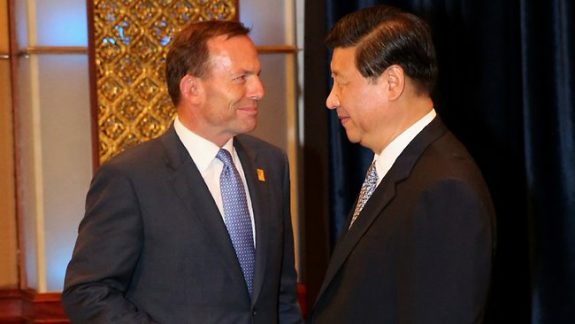The power of congregations
 It has long been my view that the potential and resources of the church are largely wasted on worship.
It has long been my view that the potential and resources of the church are largely wasted on worship.
There are few institutions with the power to influence fundamental change – governments, unions, the military, big corporations, and the church. This government is undermining the unions, using the military for civil operations, and paving the way for big corporations. Globally, we see the military and corporations wielding power in different states. In times like these, as in other times of crisis, the church needs to step up and use its power to remind the world of its responsibilities.
Despite the falling numbers in church attendance, and the growing number of people who identify as having no religion, there are positive signs of this happening.
Pope Francis is speaking out about poverty, income inequality, the economy, climate change and homosexuality, whilst adopting a much humbler lifestyle and encouraging his clergy to do the same.
“In this context, some people continue to defend trickle-down theories which assume that economic growth, encouraged by a free market, will inevitably succeed in bringing about greater justice and inclusiveness in the world. This opinion, which has never been confirmed by the facts, expresses a crude and naïve trust in the goodness of those wielding economic power and in the sacralized workings of the prevailing economic system. … Almost without being aware of it, we end up being incapable of feeling compassion at the outcry of the poor, weeping for other people’s pain, and feeling a need to help them, as though all this were someone else’s responsibility and not our own. The culture of prosperity deadens us …”
Caritas Australia has added its voice to other groups protesting against the Federal Government’s cuts of $650 million from Australia’s official aid program in the 2013-14 financial year to direct the money into Tony’s “roads of the 21st century”.
The Australian Christian Lobby also expressed disappointment at the funding cuts, announced on January 18.
Caritas Australia chief executive officer Paul O’Callaghan said it was “unfortunate such a decision had been made in the first year of our partnership with the new government”.
He said the generosity of the Australian public, bolstered by Caritas’ 40-year partnership with the Australian Government, had led to beneficial change in many countries.
“In the last year alone, this partnership enabled Caritas Australia to reach more than 1.1 million people across 20 countries,” Mr O’Callaghan said.
Other organisations such as Care, Save the Children, ChildFund, Plan International and the Fred Hollows Foundation – who also have partnership agreements with the Government – have had their funding cut by about eight per cent.
Churches are not only speaking out against cuts to foreign aid and charities, some are also making conscience investment decisions.
Resolutions passed by the NSW/ACT Synod of the Uniting Church in April show that it is possible for religious institutions to take concerted action on climate change.
The Synod resolved to divest from stocks and shares in corporations engaged in the extraction of fossil fuels, and to redirect investments into renewable energy. A second resolution, again passed by consensus, saw the Synod agree to to call upon the state government to protect important farming land, water resources and conservation areas from coal and coal seam gas mining. A third resolution, with unanimous support once again, called upon the Synod and the Assembly to speak and act pastorally as well as prophetically in the Murray-Darling Basin.
Individual churches are also making a difference. If you have not heard of Gosford Anglican Church and Father Rod then you are missing out. He organises and speaks at rallies and his signs are an internet hit. One of my favourites was “Jesus had 2 dads and he turned out ok”.
The Church has taken a stand on various hot topics of modern society, including marriage equality, asylum seekers and women’s rights.
“From a theological perspective, Jesus was on about one thing and one thing only, and that’s what he called the Kingdom of God. This Kingdom of God manifests itself in compassion and justice and true humility and there are lots of things going on in our society at the moment that aren’t about those things, like the way we treat gay people by not allowing them to be married, the way we treat our planet and the way we treat asylum seekers. These are the things Christians should be seeking – justice and compassion. We contribute to that.”
Another church that has attracted attention is the Melbourne Unitarian Peace Memorial Church.
In a bold pro-active move, the congregation thought the best possible response to the Federal Government’s Commission of Audit would be to conduct one of its own, one which they considered would put people before profit. The church raised $15,000 to commission its own Audit on behalf of the people of Australia: the People’s Commission of Audit carried out by independent public policy research organisation The Australia Institute.
They intend to release the results this month before the government releases their Commission of Audit recommendations. The comparison will be very interesting.
I would highly recommend their newsletter “The Beacon”. It is very informative on both domestic and global issues and contains excellent articles by people like refugee advocate Julian Burnside. The March edition was devoted entirely to the asylum seeker problem and is well worth a read, as are all their publications.
I am encouraged by these displays of the church taking a role in calling for change. I understand the importance of separation of church and state but, when the state is abrogating its responsibilities to humanity, then we must all join together in demanding better.










